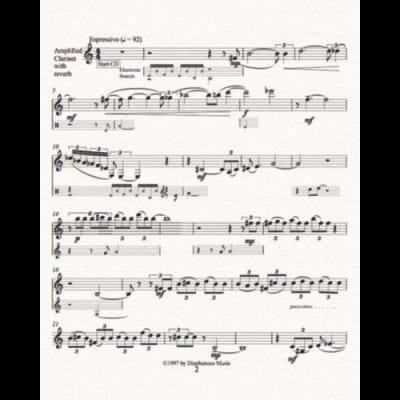Music, the Goddess of Passion

I confess: music for me is intimate. I don't know about genres and canons. Nor do I know the reasons that compel a composer to organize all the elements of a song in its wholeness. All I know is that it presents themes for me; it becomes contextual to my mood. I close my eyes, allowing my senses to float unfettered. Today, as the sky turned gray and the day folded, my emotions paralleled the journey of life moving on to that quiet destination. A song and my life walked together. In quiet I listened to Tagore's song-lyric, jokhon porbe na mor paayer chinho ei batey/ tokhon emni koreyi bajbey baanshi ei naatey/ kaatbey din kaatbe ("when my feet will no longer leave its mark on this bend/the flute will still play/days will still arrive").It presented me the message of conclusiveness; yes, I am mortal. I felt the momentary sensation of becoming the essential third note caught in the minor scale of a sadder sound. I embraced the truth.
I listened again, now attentive to the voice: tokhon ke boley go shei probhatey nei aami/ notun naamey dakbey morey, baandhbey - baandhbey notun baahu-dorey("who is to say I will not be around that morning/ I will be called by a new name – and you will hold me in a fresh embrace"). A voice, firm and melodious, carried the message with conviction, setting me on the detours of imagination to the unexpected.
And then, again, I listened. This time it was just the medley of instruments, soft and bold sounds, supporting the lyrics and the voice. They flowed together, the layers weaving melody and harmony. Yes, at that point it narrated my story. I crossed the emotional distance. Such is the power of music to grasp reality, offering renewed meanings. Indeed, music is the muse, the mind-user; it is the connection to thinking. As they say, "music is the sound of thought."
To my receptive mind, sometimes it is just one line that becomes ambrosial: tobu mone rekho/ jodi dure jaii chole/ jodi poriya mone cholocholo jol naii dekha dayey noyon-o kone tobu mone rekho ("And yet, remember me even if I wander far away/ as you think of me, if tears do not spring in corner of your eyes, yet, still remember me"). For me, it produces that plateau of surprise where I linger for a while in wonderment, reflecting on existential truths. The truth that moments do not belong and that they exist on their own volition to be summoned at one's will in the now of the future! Just because there was happiness once does not mean it is unhappiness now. Such is the introspection that makes music the muein, the mystery, that never fails to initiate a thought.
And when I listen to abar asheche ashar akash-o-cheye/ ashe brishtir-o-shubash batash beye ("ashar is here once again enfolding the sky/ bearing rain and a refreshing breeze"), it makes my mind feel the temperament of the wind and mist that playfully move through leaves; I hear the raindrops that create the symphonic notes. It leads me to see the golden sheen that divide shade and light as it comes through the branches, and compels me to smell the sweet fragrance of wet trees and earth that dissolve slowly in the air. This rhythmic flow of nature's display is a perfect performance of the adagio -- graceful and energetically alive. This song is that intangible magic which crosses over to be one with the elements of the natural world. It leaves me refreshed.
Music truly invades the most innermost spaces of my life. At the office it becomes a cluster of low notes that keep me company; on long drives music accompanies me as a good-natured friend; as I sit outside on the porch it allows my mind to wander freely; when I pen words, it becomes a stack of impressions making me wonder: do they sound better together, or do they move away from the storyline? And yes, when I need an occasional breather, music is there in the background without fail. When a whimsical medley of notes glide from one to another in an endless series, I give in to the care of this devoted companion. A companion that leads me to myriad of questions.
Sometimes I wonder if I were to choose a metaphor for my life what it would be. Could I be the daybreak Ahir Bhairav raga, or perhaps the late-night raga Rageshri? No, none of that! I believe it would be the traditional bnashi, the slender hollow bamboo piece with burnt holes. You see, for my bohemian mind the musical emotion in dure kothae, dure dure/ amar mon baraye ghure ghure/ je banshite batash kande sheyi banshitir shureshere ("where far away/ where does my mind roam/with the flute's tune that causes the breeze to weep?") is the perfect teaser of images pleasingly personal. It sets me loose on a journey to my native land, to the river banks, the musky air and the evening twilights. The flute possesses the aion, the vital force, that creates its own content comprehensible within the cultural expressions across time. It has a dynamic language of its own, ever changing, ever probing.
Indeed, music is provocation!
Ainon N. writes from Chicago, IL.

 For all latest news, follow The Daily Star's Google News channel.
For all latest news, follow The Daily Star's Google News channel. 



Comments